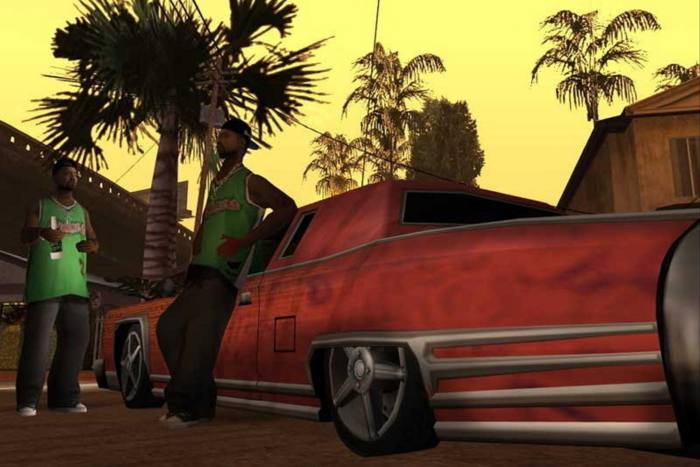Before Grand Theft Auto transformed the video games industry, there was a game called Race ‘n’ Chase. It was created in the mid-1990s by a Dundee-based studio, DMA Design, which had previously had success with a title called Lemmings. Off the back of that, they developed a new game in which users played a police officer driving around arresting street criminals. Penalties were given for knocking over pedestrians, though DMA’s programmers began to notice that not only did players knock them down anyway, they seemed to take pleasure in doing so. The game was subsequently adjusted to allow users to play criminals instead of cops, then renamed, and so Grand Theft Auto was born.
Bugzy Malone’s Grandest Game is a new BBC podcast that examines this landmark game in which players commit robberies, beat up sex workers, mow down pedestrians and murder police, and how it became a multimillion pound franchise. Malone, a Manchester-based rapper and dedicated gamer whose songs have referenced GTA, shares hosting duties with Chris Warburton, a radio presenter and podcaster behind End of Days and Ecstasy: The Battle of Rave.
The series charts the evolution of GTA but also the moral panic that accompanied its sudden success. In 1997, Lord Campbell of Croy condemned the game’s violence in the House of Lords while, in the US, the attorney and activist Jack Thompson (later disbarred by the Supreme Court of Florida) led a high-profile crusade against games that he labelled “murder simulators” and which he claimed were the cause of several mass shootings.

Weaving in testimony from GTA’s creators, plus commentators and academics, Malone and Warburton show how the fast-growing 1990s games industry used the music business as its template (fittingly, DMA changed its name to Rockstar North) and how the aesthetic and characterisation borrowed from Hollywood. They make a compelling case for games as an art form equal to film and TV in creating engaging visuals and narratives. Reflecting on Vice City, the fourth in the GTA series, set in 1980s Miami, games developer Brianna Wu hails a “neon world that just feels alive and fun. You mix it with that 1980s soundtrack and it just goes down to your soul.”
I was initially sniffy about Malone’s involvement in the series. Podcast networks love to parachute in famous names who read someone else’s script and often end up sounding disengaged. But while it is Warburton who has done the legwork, the reason for Malone’s presence becomes clear in the fourth episode when he discusses how San Andreas, the fifth GTA game, reflects criminal culture. Malone, who grew up around gangs and served a prison sentence at 16 for robbery, says: “It’s a game but it goes a bit deeper. GTA didn’t make me do any of this. I made my own choices . . . But we was living that life. We were living San Andreas.”





